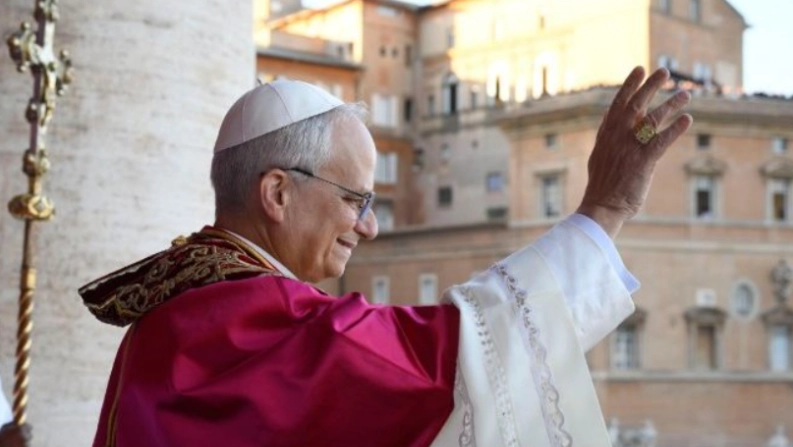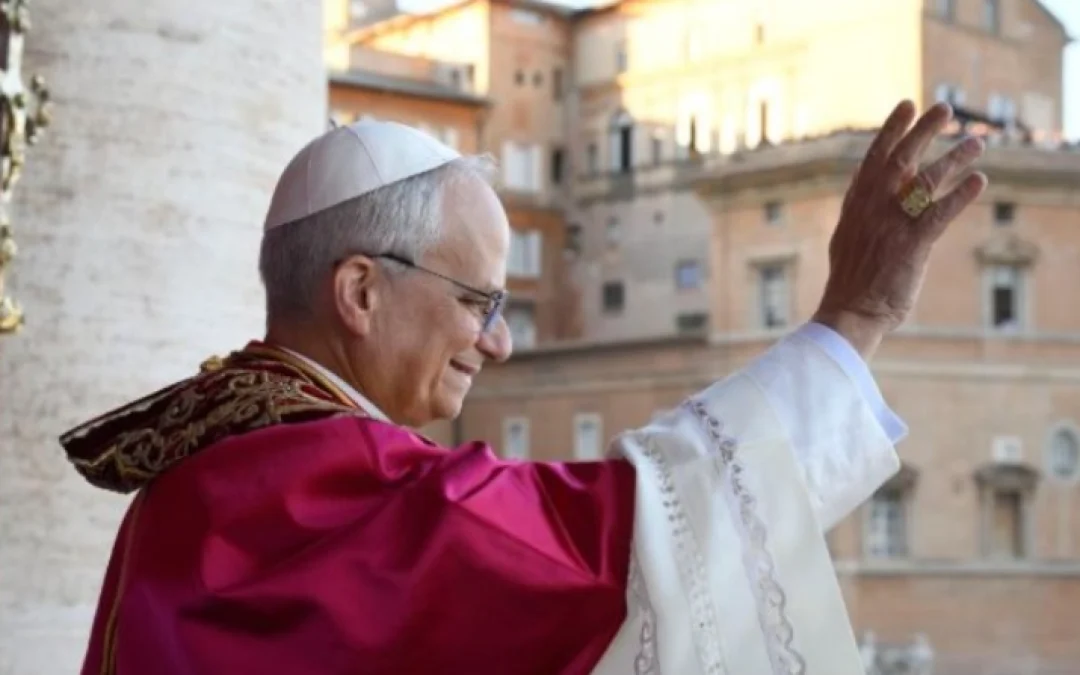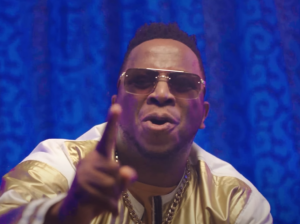Cardinal Robert Francis Prevost Named 267th Pope, Takes Name Leo XIV
Cardinal Robert Francis Prevost was elected the 267th pope of the Roman Catholic Church on Thursday, taking the name Pope Leo XIV.

His election comes 17 days after the passing of Pope Francis. At age 69, he is younger than the two most recent popes at the time of their election, though still older than Pope St. John Paul II, who became Bishop of Rome at age 58.
Here are five key things to know about Pope Leo XIV, focusing on his background and views:
1. He is the First American Pope
One of the most significant aspects of Pope Leo XIV’s election is his nationality.
He becomes the first pope in history from the United States. According to the College of Cardinals Report, he was born in Chicago, Illinois, on September 14, 1955. He earned a bachelor’s degree in mathematics from Villanova University in 1977, and in 1982, he received a Master of Divinity from the Catholic Theological Union in Chicago. That same year, he was ordained a priest.
From 1999 to 2001, he served as provincial of the Augustinian Province of Chicago. The Midwest Augustinians still list him among their solemnly professed members. The order’s mission emphasizes living in community while serving the Church in schools, parishes, and missions.
From 2001 to 2013, Prevost served as Prior General of the Order of St. Augustine, leading the order globally as its highest authority.
2. He Has Deep Ties to Latin America
Though born in the U.S., Pope Leo XIV has spent a significant portion of his ministry in Latin America.
He obtained both a licentiate and a doctorate in canon law from the Pontifical University of St. Thomas Aquinas in Rome. Between 1985 and 1986, he served in pastoral ministry in Chulucanas, Peru. He later worked in Trujillo, Peru, from 1988 to 1998 as a community prior, formation director, and professor.
After a period back in the U.S., he returned to Peru in 2014 as apostolic administrator of the Diocese of Chiclayo and was appointed bishop the following year. He remained in that role for eight years.
Even after becoming a cardinal in 2023 and prefect of the Dicastery for Bishops, he maintained close connections with Latin America. That same year, he was also appointed president of the Pontifical Commission for Latin America.
3. He Opposes Female Deacons, Holds Nuanced Views on LGBT Issues
According to the College of Cardinals Report, Pope Leo XIV has expressed opposition to the ordination of female deacons and holds nuanced positions on issues involving same-sex couples.
In 2023, he commented that “clericalizing women” may not solve existing challenges and could introduce new ones. In a 2012 speech, he voiced concern over cultural shifts in the West, pointing to the acceptance of the “homosexual lifestyle” and “alternative families” as areas of concern.
Following Pope Francis’ 2023 authorization for priests to bless same-sex couples, Leo XIV defended African bishops who resisted the move, citing cultural differences and legal realities.
“There are still places in Africa that apply the death penalty… for people in homosexual relationships,” he noted. “Each episcopal conference must be able to interpret and apply such documents within its cultural and pastoral reality.”
4. He Criticized Trump-Era Immigration Policies
Pope Leo XIV’s past social media activity has drawn attention for appearing to reflect progressive political leanings, particularly on immigration.
In one post, he shared an article criticizing then–Vice President J.D. Vance’s views on prioritizing love for country over global concern. In another, he reposted a message from Cardinal Blase Cupich condemning the Trump administration’s policy of separating children from their families at the U.S.–Mexico border.
He also publicly supported protections for undocumented immigrants brought to the U.S. as children — known as “Dreamers” — a program that was repealed by President Trump but upheld by the Supreme Court.
5. He Has Been Accused of Mishandling Abuse Cases
As speculation about his papal prospects grew, the publication InfoVaticana published details from a March 2024 letter to Pope Francis.
The letter alleged that during his tenure as Bishop of Chiclayo, Prevost failed to act against a priest accused of sexually abusing three minors. It also claimed the diocese paid $150,000 to victims who said Prevost covered up the abuse.
The Diocese of Chiclayo strongly defended him, stating that he contacted victims and initiated a canonical investigation.
Separately, during his time as provincial in Chicago, Prevost faced criticism for reportedly allowing a priest convicted of abuse to stay at a priory near an elementary school.









